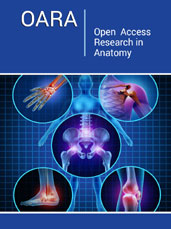- Submissions

Abstract
Perceptions in Reproductive Medicine
Every Child Comes with his or her Own Blessings: The Perceptions and Belief Systems of Indigenous Bakiga Men Regarding LARCs Use by their Rural Women
-
open or closeKibonire RA* and Mphuthi DD
School of Social Sciences, College of Human Sciences, Department of Health Studies, University of South Africa, South Africa
*Corresponding author:Ronald Arineitwe Kibonire, School of Social Sciences, College of Human Sciences, Department of Health Studies, University of South Africa
Submission: November 20, 2023;Published: December 22, 2023

Volume6 Issue1December 22, 2023
Worldwide complications associated with pregnancy, labour, and the postpartum period claim the lives of many women. Contraception, especially the use of Long-Acting Reversible Methods (LARCs), is one of the most effective interventions for reducing maternal mortality. LARCs aid in the postponement of pregnancy and allow for longer intervals between deliveries. However, the use of LARCs remains minimal globally and in Uganda due to male partners’ lack of acceptability. This qualitative study aimed to investigate the perceptions and belief systems of rural indigenous Bakiga Ugandan men regarding their rural women’s use of LARCs. The study was conducted in the districts of Rubanda, Uganda. Using purposeful sampling, the researcher selected 45 married males aged 20 to 49 for focus group interviews and 15 for individual interviews, for a total of 60 participants. For both individual and focus group interviews, the researcher employed semi-structured questions. Transcribing the interviews, organising the field notes, sorting and saving the data, listening to recordings, looking through the interviews and field notes, coding and categorising the data, and finally finding the emergent themes from the phenomena were all used to analyse the data.
According to these research findings, rural indigenous Bakiga Ugandan men’s perceptions, and belief systems regarding the use of LARCs by their rural wives served as obstacles to the method’s acceptance. Among the perceptions were low libido, effects on body organs, infertility, arm paralysis, adultery, difficulties with the removal and management of side effects, difficulties in feature deliveries, excessive weight gain, conceiving while on a method, the desire for balanced sex, and having the desired number of children. The research also found religious and cultural views as belief systems the men had. The study recommends creating an environment conducive to the provision of LARC services, policymakers and the ministry of education and sports should train pre-service and in-service healthcare personnel to provide LARC services. Other recommendations include enhancing social and behavioural change communication, improving service delivery for LARCs, and instituting robust monitoring and evaluation systems for LARCs
Keywords:Long-acting reversible contraceptive methods (LARCs); Beliefs; Perceptions; Indigenous Ugandan men; Rural
Abbreviations:LARC: Long Term Reversible Contraceptives; SSA: Sub-Saharan Africa; US: United States; IUDs: Intra-Uterine Devices; UNISA: University of South Africa; RDC: Resident District Commissioner; FGD: Focus Group discussion; I: Mean Individual Interviews; R: Refers to Participants from Rubanda District, Nyamweru Sub-County; RM: Means Participant from Rubanda District, Muko Sub-County; K: Refers to Participants from Kiboga District, Bukomero Sub-County; KD: Means Participant from Iboga District, Dwanilo Sub-Countys
 a Creative Commons Attribution 4.0 International License. Based on a work at www.crimsonpublishers.com.
Best viewed in
a Creative Commons Attribution 4.0 International License. Based on a work at www.crimsonpublishers.com.
Best viewed in 







.jpg)






























 Editorial Board Registrations
Editorial Board Registrations Submit your Article
Submit your Article Refer a Friend
Refer a Friend Advertise With Us
Advertise With Us
.jpg)






.jpg)














.bmp)
.jpg)
.png)
.jpg)










.jpg)






.png)

.png)



.png)






